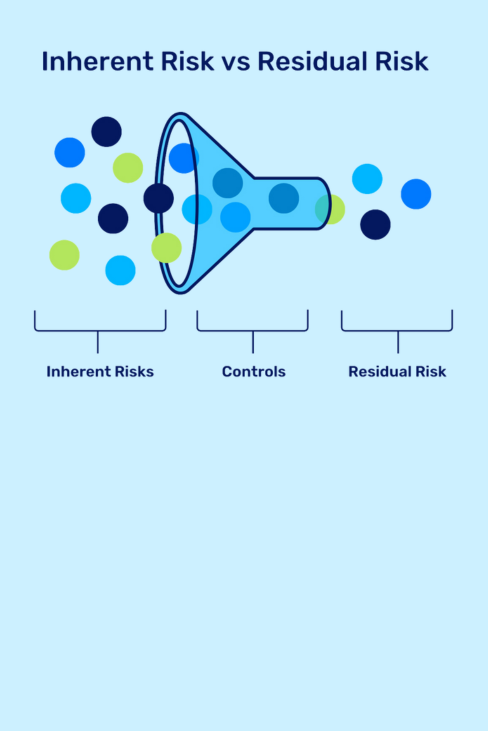Authored by Chris Rossi | Director, Technology Advisory
An Enterprise Resource Planning (ERP) solution could be one of the most significant technological investments your business can make, so it’s important that you know what type of value it can provide before you implement or upgrade. To truly capitalize on all the benefits of an ERP, you first need to determine your business needs, more specifically your current challenges and how they adversely impact operations, processes, and services. Then ask, “can our existing software, resources, and personnel address those needs, or is a new software solution required?” If the latter is your answer, then rest assured that the modern ERP options available are flexible and customizable to ensure the solution you select will meet business requirements and processes.
In this article, we’ll explore the benefits of ERP systems and how, with the right partner, you can choose the best solution for your enterprise needs.
The Top 10 Benefits of an ERP Solution
Implementing an ERP solution can realize a lot of benefits for your organization, including the ability to:
- Integrate operational and management systems: An ERP system gives you a unified view of information from different systems in real-time, whether it comes from the ERP software itself or remote systems.
- Streamline financial functions: ERP systems connect various business processes and facilitate the integration of data between them. Finances are the core of those processes.
- Unlock faster reconciliation: Account reconciliations can be automated once there is a single source of truth that ERP software provides.
- Migrate information to the cloud: Cloud-based ERP means that anyone that needs to access it can do so anytime, from anywhere, and from any device they are using.
- Improve data security: ERP solutions, since they’re now cloud-based, use top-notch security, making them more secure than your own data center when properly implemented.
- Future-proof infrastructure and investments: ERP systems allow you to adapt to changing circumstances based on industry trends, evolving technology, and business growth or advancements.
- Accelerate productivity and user adoption: Because ERPs optimize collaboration and business performance, it won’t take long for employees (and stakeholders) to learn and see the advantages of a modern ERP solution.
- Recover savings and see measurable ROI: With an ERP system, you will see labor productivity savings, financial management efficiencies, and supply chain productivity.
- Compete more effectively in the market: ERP software can help you outperform both your non-technological and more tech-savvy competitors, but early adoption is key.
- Streamline customer reports: An ERP system can autogenerate reports based on predetermined criteria and email them to customers and stakeholders.
Explore ERP Solutions that Will Meet Business Needs
It’s easy to see how an ERP could change your business for the better, and you may think, “sign me up now,” until you look for one. This is where the real work begins. There are dozens of ERP solutions to choose from. Many are flexible for various organization types and sizes, with modules that you can pick and choose from. Others cater to specific industries. Some are customized from the ground up. So, where do you start?
If you decide to explore an ERP solution, here’s an idea of the steps involved:
- Build an ERP selection team to handle finding an ERP solution
- Gather software requirements from everyone that will use the new system
- Research ERP systems online and at conferences
- Match requirements to ERP systems that could work for you
- Determine how you can improve business processes to work with each system
- Come with a data migration and management plan
- Schedule demos with your short list of ERP providers
This process can take weeks, and if your employees are not yet up to speed on ERP systems, it can take even longer. This can take time away from other projects that are just as important and act as a disruption to both your employees and customers. It is not something we recommend you do alone, because selecting your ERP solution is just the tip of the iceberg.
Opt for External Advisory and Support
Choosing an ERP solution will take some time, but it is time well spent if used to find an ERP solution that fits the unique needs of your business and to craft a well-thought-out integration plan. Most times, proposed solutions from vendors are poorly defined and scoped, leaving many of the benefits you could gain from ERP on the table. This means going back to the planning phase, increasing the budget of the project if you can, stretching project timelines, and leaving you wondering if it was a good choice in the first place.
An ERP solution is not only one of the largest IT investments your enterprise will make, but it could easily be one of the most complex. It is not something you want a salesperson or account representative to help you out with. Even a technological wizard won’t help much if they don’t know the ins and outs of ERP implementation.
The right technology partner, however, can make this process go smoothly and cut the time it takes to implement your solution. They will be there to collaborate with your team and overcome any hurdles that get in the way. They also:
- Have expertise in cloud, security, and mobile and industry-specific applications
- Can talk technically about any software and how it connects to your unique environment
- Adhere to a vendor agnostic approach so your options aren’t limited
The Perfect Partner, The Right ERP
Maybe you’re still unsure whether a new ERP system can benefit your business, or maybe you already know you need to implement better technology but are not sure where to start. SC&H can help. For more information on defining the best ERP solution for your business, contact our team to learn more about how we can help you navigate the ERP implementation process.
An ERP Success Story
Learn how we helped Burris Logistics optimize its operational and financial success.
Download the Case Study




